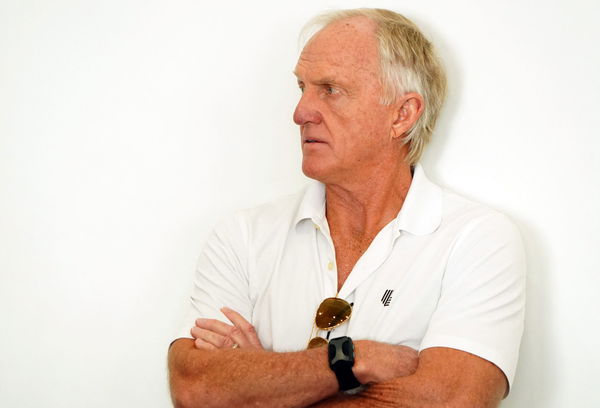

In less than three years, fans witnessed a never-before-seen seismic shift in the world of golf. It began with a revolutionary idea of LIV Golf. At first, the Saudi-backed league was not given much importance, but, with time, it made a stand for its own. It accumulated several top-class golfers and fans flocked towards the limelight of LIV’s style and new circuit. The 54-hole format also onboarded many streaming partners including Caffeine TV, funded by the VC giant Andreessen Horowitz and the Murdoch family, in February this year.
Launched in 2019, the mobile-first platform was focused on sports and gaming live streaming. But on June 26th morning, an announcement gave a setback to LIV Golf’s Chairman, Greg Norman & Co. It stated that the streaming platform has been unprofitable and will shut down. “All good things come to an end,” shows a message on the Caffeine TV website read.
ADVERTISEMENT
Article continues below this ad
Greg Norman and Co. explore fresh streaming partnerships
“We’re at the point where we are still not quite profitable, so we’ve made the decision to end the service as of June 26th as we figure out our next steps.” Caffeine’s closure leaves LIV Golf without a paid streaming rights partner in the United States with six events remaining in its 2024 campaign.
Given this blow, however, the positive news for Greg Norman-led LIV is their streaming capability. They began offering direct-to-consumer streaming in 2022 and 2023 through a subscription model on YouTube and the LIV Golf app. This approach has continued following their deal with Caffeine TV.
Although the future of the media rights business remains uncertain, the league’s innovative golf TV production continues to improve, not hampered by other pro golf broadcasts.

via Reuters
Golf – The inaugural LIV Golf Invitational – Centurion Club, Hemel Hempstead, St Albans, Britain – June 8, 2022 Chief executive of LIV Golf Investments Greg Norman before the Pro-Am Action Images via Reuters/Paul Childs
Moreover, LIV could also find itself in an advantageous position with a different approach. The breakaway league could benefit if the NBA reshapes the sports coverage sector with an expected $2.5 billion/year agreement with NBC. This could lead major streamers like Warner Bros. Discovery or Fox to scramble for sports rights, where LIV could offer a more affordable option for them.
ADVERTISEMENT
Article continues below this ad
With its partner leaving the stage, will LIV Golf struggle until the next deal?
Well, considering the Caffeine deal was especially for the Friday rounds of the league. It carried out pre and post-round shows, podcasts, and other affiliated programs, mainly the problematic first round of the PIF-funded league’s events. LIV Golf tried to improve the Friday broadcasting experience, as they wanted to stop its loss of revenue.
Moreover, a delayed merger cost LIV Golf millions in losses, with its comparative disadvantage against the PGA Tour with viewership. But things have shifted lately, with LIV golfers garnering strong support from the fans. The U.S. Open winner, Bryson DeChambeau, is the center of attention at The Grove. His presence led to a record-breaking attendance of 40,000 over three days at LIV Golf Nashville.
This achievement is particularly significant as it coincided with the PGA Tour’s Travelers Championship. Beyond on-course attendance, LIV Golf has achieved notable TV ratings success. This year, the final round of LIV Golf Mayakoba garnered 432,000 viewers, setting a new benchmark for viewership across all LIV Golf tournaments.
ADVERTISEMENT
Article continues below this ad
Now, after the Caffeine shutdown, the breakaway league’s revenue problems can arise, but they have come so far that it would not be a big one for them. What can be the next potential option for LIV? Let us wait and watch.
ADVERTISEMENT
ADVERTISEMENT
ADVERTISEMENT
ADVERTISEMENT

